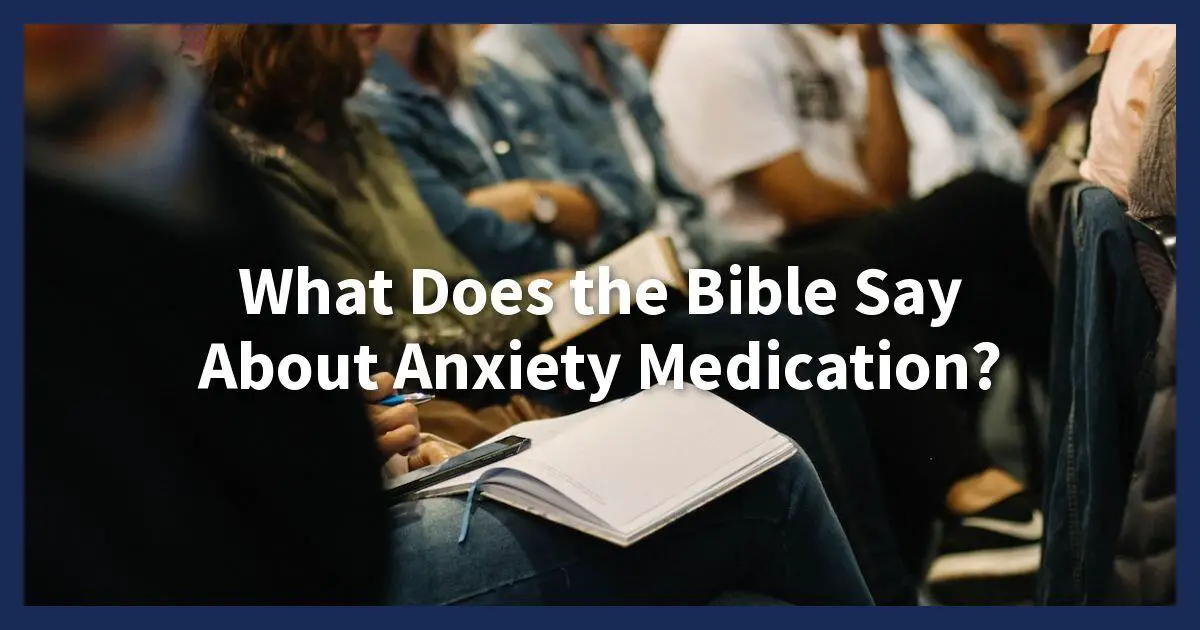Exploring the intersection of faith and health, one might ask, “What does the Bible say about anxiety medication?“. The Bible, a spiritual guide for many, doesn’t provide direct answers to modern-day medical questions. However, it offers wisdom and principles applicable to challenges like anxiety.
So, does the Bible condemn the use of anxiety medication? Not at all. It encourages seeking help in times of need (Galatians 6:2), and medication can be a form of that help. It’s about finding balance and doing what’s best for your wellbeing.
However, it’s important to remember that medication isn’t the only solution. The Bible also promotes prayer, faith, and community as powerful tools against anxiety. Addressing the root cause of anxiety, rather than just the symptoms, is often the most effective long-term strategy.
But the question remains – is it okay for Christians to use anxiety medication? The short answer is yes. It’s not a sign of weak faith or moral failure. It’s about managing a health issue.
The Bible’s teachings can coexist with modern medicine. Just like you would treat a physical ailment with medication, it’s perfectly acceptable to treat mental health issues the same way. The key is to combine faith with practical solutions for a holistic approach to managing anxiety.
What Is Anxiety?
Anxiety is an emotional and mental disorder that causes a person to feel fear, worry, and uneasiness.
It often interferes with day-to-day functioning and can lead to feelings of low self-esteem, discouragement, and hopelessness.
It can also affect sleeping, eating habits, and social interactions.
Anxiety can be caused by multiple factors including genetic predisposition, environmental factors, or life circumstances.
It is important to know the various causes of anxiety so that you can better understand the disorder and the available treatments.
There are several types of anxiety disorders such as generalized anxiety disorder, specific phobia, panic disorder, and post-traumatic stress disorder. Each disorder requires different treatment depending on its severity and the individual’s needs.
What Does The Bible Say About Anxiety?
The Bible has a wealth of knowledge regarding anxiety. In Philippians 4:6-7 it says, “Be anxious for nothing; but in every thing by prayer and supplication with thanksgiving let your requests be made known unto God. And the peace of God, which passeth all understanding, shall keep your hearts and minds through Christ Jesus.”
Here, we can see that the Bible encourages us to pray and give thanks to God instead of worrying and stressing over a situation.
In 1 Peter 5:7, it says, “Casting all your care upon him; for he careth for you.”
In this verse, we can see that God is telling us to trust Him and to put our faith in Him. God’s love and care for us can help us manage our anxiety more effectively.
In Isaiah 26:3, it says, “Thou wilt keep him in perfect peace, whose mind is stayed on thee: because he trusteth in thee.”
Here, we can see that God desires for us to trust in Him and to focus our minds on Him instead of anxiety. This is a reminder for us to turn to God for our peace.
What does the Bible say about Anxiety Medication?
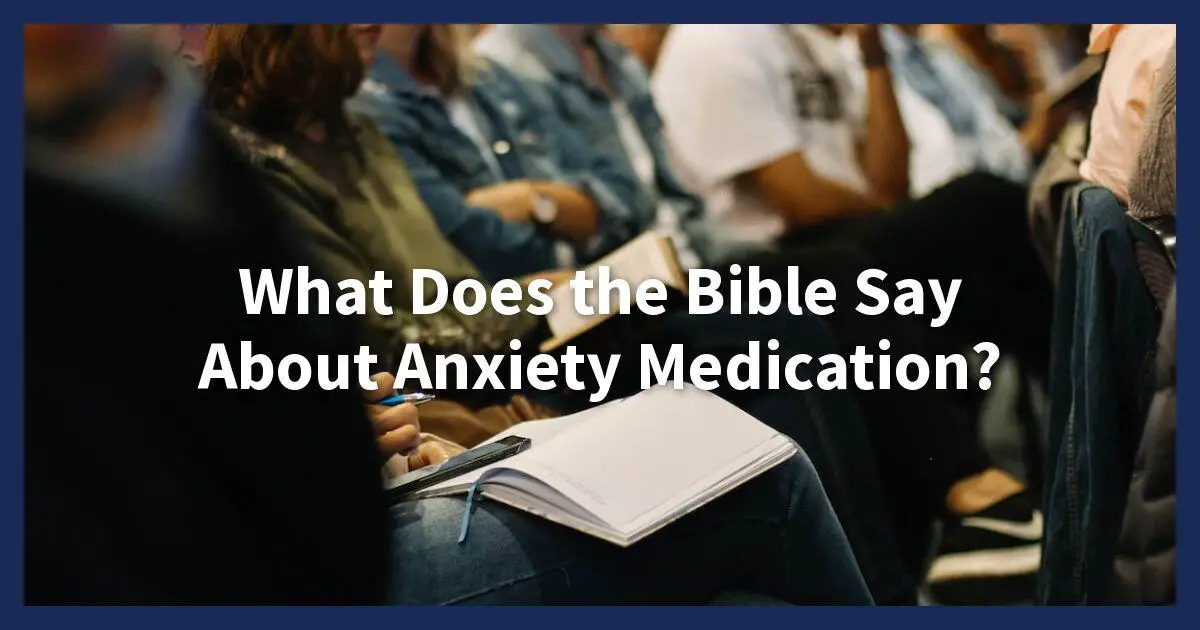
When it comes to anxiety medications, the Bible speaks of God as our healer and comforter. In Psalm 103:3 it says, “who forgiveth all thine iniquities; who healeth all thy diseases;”
Here, we can see that God comes first when it comes to healing our ailments. It is important to rely on His grace and mercy before deciding to take anxiety medications.
However, the Bible also encourages us to seek help, if we need it. In 1 Timothy 5:23, it says, “Drink no longer water, but use a little wine for thy stomach’s sake and thine often infirmities.”
In this verse, it is clear that the Bible encourages us to seek out medical help if necessary.
Therefore, we should not be afraid to consider taking anxiety medications if it is prescribed by a medical professional.
Understanding Anxiety Medication
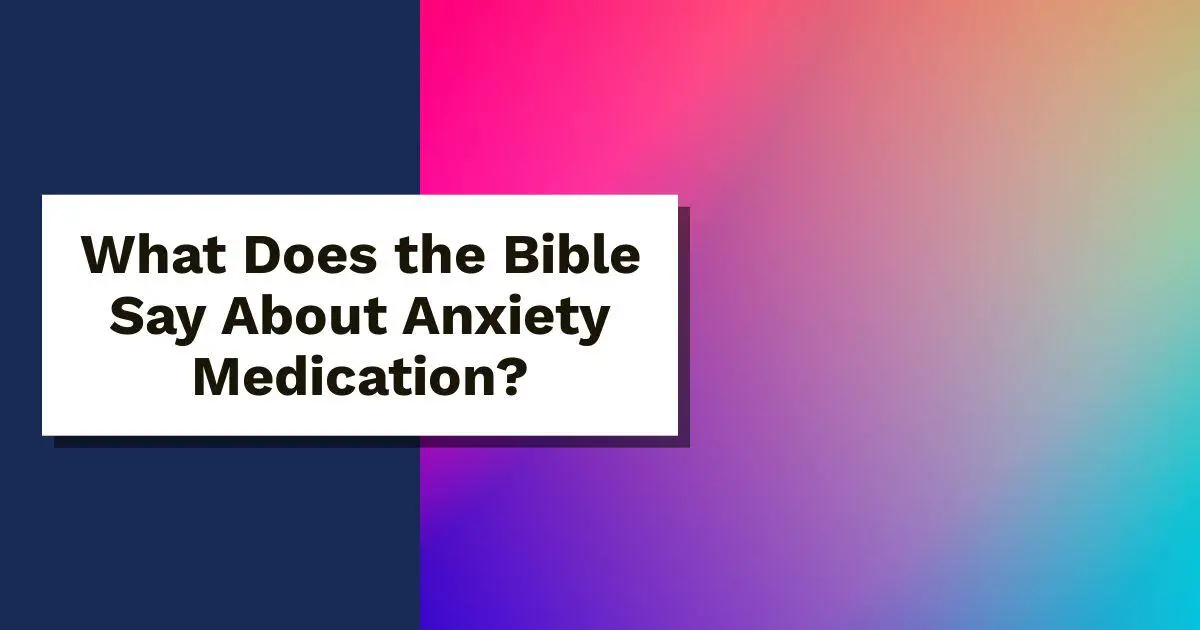
Anxiety is a common mental health condition that can significantly impact a person’s daily life. Thankfully, there are various treatment options available, including anxiety medication.
In this section, we will explore what anxiety medication is, the different types of anxiety medication, how it works, and its effectiveness.
What is Anxiety Medication?
Anxiety medication, also known as anti-anxiety medication, is a type of medication prescribed to individuals experiencing anxiety disorders.
These medications aim to alleviate symptoms such as excessive worry, restlessness, and panic attacks.
Common Types of Anxiety Medication
There are different types of anxiety medication, and they can be categorized into several major groups:
- Selective Serotonin Reuptake Inhibitors (SSRIs): SSRIs are commonly prescribed for anxiety disorders and work by increasing the levels of serotonin, a neurotransmitter, in the brain.
- Benzodiazepines: Benzodiazepines are fast-acting medications that provide temporary relief from anxiety symptoms. They work by enhancing the effects of a neurotransmitter called gamma-aminobutyric acid (GABA).
- Buspirone: Buspirone is a medication that affects serotonin and dopamine levels in the brain. It is often prescribed for generalized anxiety disorder.
- Beta Blockers: Beta blockers are usually prescribed to manage physical symptoms of anxiety, such as rapid heart rate and trembling.
How Anxiety Medication Works
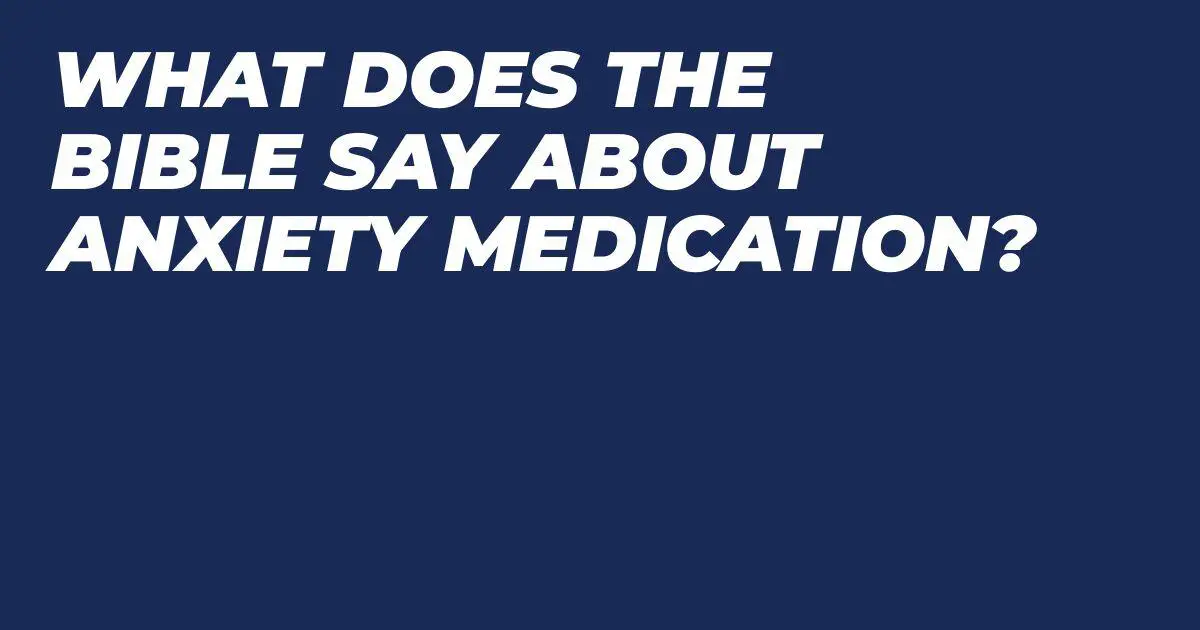
Anxiety medication works by targeting the chemical imbalances in the brain that contribute to anxiety symptoms. SSRIs, for example, help regulate serotonin levels, which can improve mood and reduce anxiety.
Benzodiazepines, on the other hand, enhance the calming effects of GABA, which can help alleviate anxiety and promote relaxation.
Benefits of Taking Anxiety Medication
The benefits of taking anxiety medications include improved concentration, better overall mood, improved sleep, and reduced stress levels. By taking anxiety medications, individuals can gain better control over their anxiety and lead more productive lives.
That said, is also important to follow the doctor’s instructions if taking anxiety medications so that they do not become addictive.
Effectiveness of Anxiety Medication
The effectiveness of anxiety medication varies from person to person. Some individuals may find significant relief from their anxiety symptoms, while others may experience minimal improvement or even negative side effects.
It’s important to note that medication alone may not address the underlying causes of anxiety, and a comprehensive treatment approach, including therapy and lifestyle changes, may be necessary for optimal results.

It’s essential to consult with a qualified healthcare professional to determine the most appropriate anxiety medication for your specific needs.
They can assess your symptoms, medical history, and any potential interactions with other medications to develop an individualized treatment plan.
For more information about anxiety medication, you can visit anxiety.org or National Institute of Mental Health.
Indept Biblical Perspective on Anxiety Medication
In today’s world, many individuals struggle with anxiety and seek ways to find relief and improve their mental health. One question that often arises is whether anxiety medication aligns with biblical principles.
In this section, we will explore the biblical perspective on anxiety medication and discuss important considerations for those seeking professional help and balancing faith with medical treatment.
God’s Provision for Mental Health
When it comes to mental health, it is essential to recognize that God cares deeply about our well-being. The Bible encourages us to cast our anxieties on Him because He cares for us (1 Peter 5:7). It is not sinful to seek medical assistance, including anxiety medication, as a means to find relief and functioning at an improved level.
Just as God has provided various resources for physical healing, such as medical professionals and treatments, He has also provided resources for mental healing.
Anxiety medication can be seen as one of these resources, intended to alleviate suffering and improve overall mental health.
Seeking Professional Help
When considering anxiety medication, seeking professional help is crucial. Consulting with a medical doctor or psychiatrist who specializes in mental health is vital to ensure an accurate diagnosis and appropriate treatment plan.
It is important to note that anxiety medications are constantly evolving, with new options regularly entering the market.
Therefore, discussing the major categories of medication and how they work is more beneficial than focusing on specific brand names that may change over time.
Remember, each person’s response to medication can vary. What may work for one individual may not have the same effect on another.
Therefore, it is essential to work closely with a healthcare professional who can monitor your progress, adjust dosages if necessary, and provide guidance throughout the treatment process.
Balancing Faith and Medical Treatment
As believers, it is natural to wonder how faith intersects with medical treatment, including the use of anxiety medication.
It is important to understand that seeking medical help does not diminish our reliance on God. Instead, it demonstrates our trust in God’s provision through various means, including medical professionals and treatments.
While anxiety medication may provide short-term relief, it is crucial to recognize that healing extends beyond physical symptoms.
Addressing underlying emotional struggles and finding long-term solutions often involves a holistic approach that includes counseling, support networks, and developing healthy coping mechanisms.
Remember that each person’s journey is unique, and what works for one individual may not work for another.
It is essential to listen to your healthcare provider, follow their guidance, and communicate openly about any concerns or changes in your symptoms.

Considerations and Alternatives
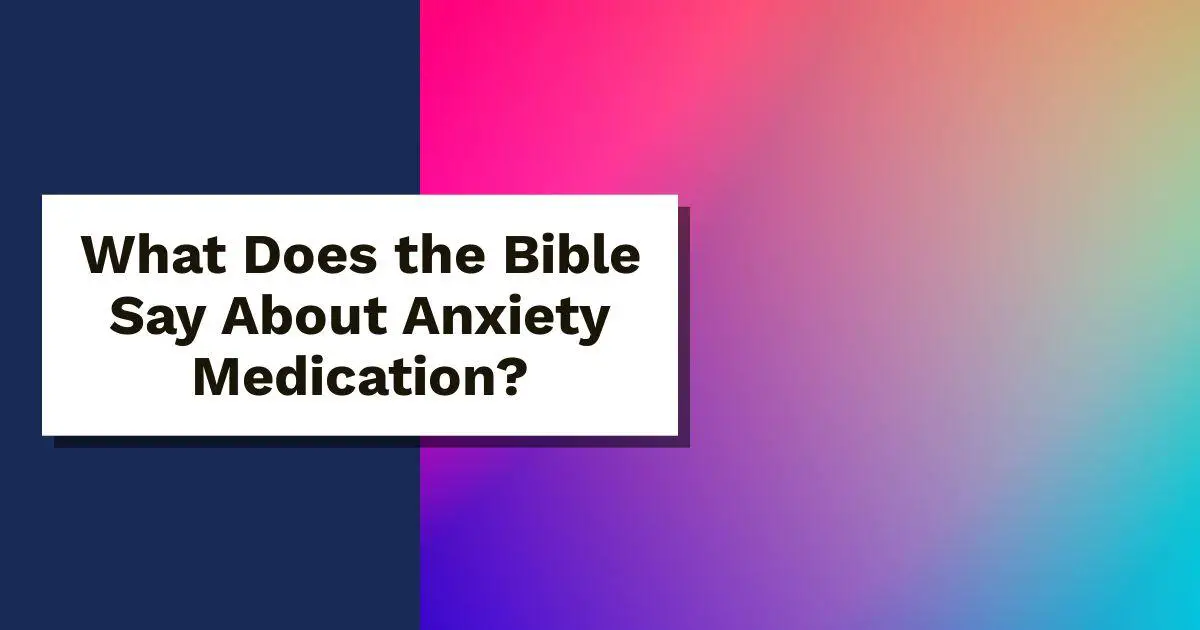
When it comes to anxiety medication, it is important to consider various factors before making a decision. In this section, we will explore the side effects of anxiety medication, the relapse rate and long-term effects, natural approaches, as well as therapy and other non-medication options.
Side Effects of Anxiety Medication
Before starting any medication, it is crucial to be aware of the potential side effects. While anxiety medication can be effective in managing symptoms, it is important to weigh the benefits against the possible drawbacks.
Some common side effects may include drowsiness, dizziness, nausea, and changes in appetite. It is recommended to consult with your healthcare provider to understand the potential side effects of the specific medication you are considering.
Relapse Rate and Long-term Effects
In addition to understanding the side effects, it is essential to consider the relapse rate and long-term effects of anxiety medication.
Research suggests that while medication can provide short-term relief, it may not necessarily address the underlying causes of anxiety.
Additionally, some individuals may experience a relapse of symptoms once they discontinue the medication.
It is important to discuss these factors with your healthcare provider to make an informed decision.
Exploring Natural Approaches
For those who prefer a more natural approach, there are alternative options to consider. Natural remedies such as exercise, relaxation techniques, and dietary changes have shown promise in reducing anxiety symptoms.
It is important to note that natural approaches may not be effective for everyone, and it is recommended to consult with a healthcare professional to determine the most suitable approach for your specific situation.

Therapy and Other Non-Medication Options
In addition to medication and natural approaches, therapy and other non-medication options can be effective in managing anxiety.
Cognitive-behavioral therapy (CBT) is a common form of therapy that focuses on identifying and altering negative thought patterns and behaviors.
Other non-medication options may include mindfulness practices, support groups, and stress management techniques.
It is important to discuss these options with a mental health professional to determine the best course of action.

When it comes to the use of anxiety medication, there are often moral concerns that arise. People may wonder if it is sinful to rely on medication for relief from anxiety.
In this section, we will explore these moral concerns and provide guidance on how to approach them.
Is it Sinful to Use Anxiety Medication?

Using anxiety medication is not inherently sinful. It is important to remember that anxiety is a real and challenging condition that can significantly impact one’s daily life.
Seeking treatment, including medication, is a responsible and valid approach to finding relief and improving overall functioning.
It is essential to differentiate between self-care and unhealthy dependency.
Utilizing anxiety medication should be seen as a means to manage symptoms and enable individuals to engage in their daily activities more effectively.
However, it is crucial to seek guidance from a medical professional to ensure proper use and dosage.
Seeking Guidance and Discernment
When considering the use of anxiety medication, seeking guidance from a trusted medical professional is vital.
They can provide valuable insights into the benefits, potential risks, and side effects associated with specific medications.
Additionally, they can help determine the appropriate course of action based on an individual’s unique circumstances.
It is also essential to exercise discernment when it comes to anxiety medication. Being informed about the different types of medication available, their mechanisms of action, and potential alternatives can help individuals make well-informed decisions.
Consulting reputable sources and seeking second opinions, if necessary, can contribute to a more comprehensive understanding of available options.
Personal Convictions and Individual Choices

Personal convictions play a significant role in the decision to use anxiety medication. While it is not inherently sinful, individuals may have personal beliefs or convictions that influence their choices. Some may prefer to explore non-medication alternatives, such as therapy, lifestyle changes, or natural remedies.
Ultimately, the decision to use anxiety medication is a personal one. It is crucial to respect and honor individual choices, recognizing that different approaches may work for different people. Open dialogue, understanding, and support from loved ones can create an environment where individuals feel empowered to make the best decision for their well-being.
Final Thoughts

In conclusion, when it comes to the question of anxiety medication and what the Bible says about it, there is no definitive answer. Taking anti-anxiety medicines is not morally wrong, as seeking relief and improved functioning is a worthwhile goal.
However, it is important to note that the effectiveness of these medications can vary from person to person. While some may find them helpful, others may experience little benefit or even worsening of symptoms.
It is also worth considering that relying solely on medication may prevent addressing underlying struggles and emotions that could lead to long-term healing.
Ultimately, the decision to use anxiety medication should be made in consultation with a medical professional who can provide guidance based on individual circumstances.
Remember, if you are currently taking psychiatric medicine, it is crucial to work with your doctor to develop a plan for discontinuation, as abruptly stopping medication can be harmful.

Faithway.info, your online sanctuary for deepening your spiritual journey and mastering the teachings of the Bible. At Faithway.info, we are passionate about making the wisdom of the Bible accessible to everyone, fostering a community dedicated to growth, understanding, and support.
